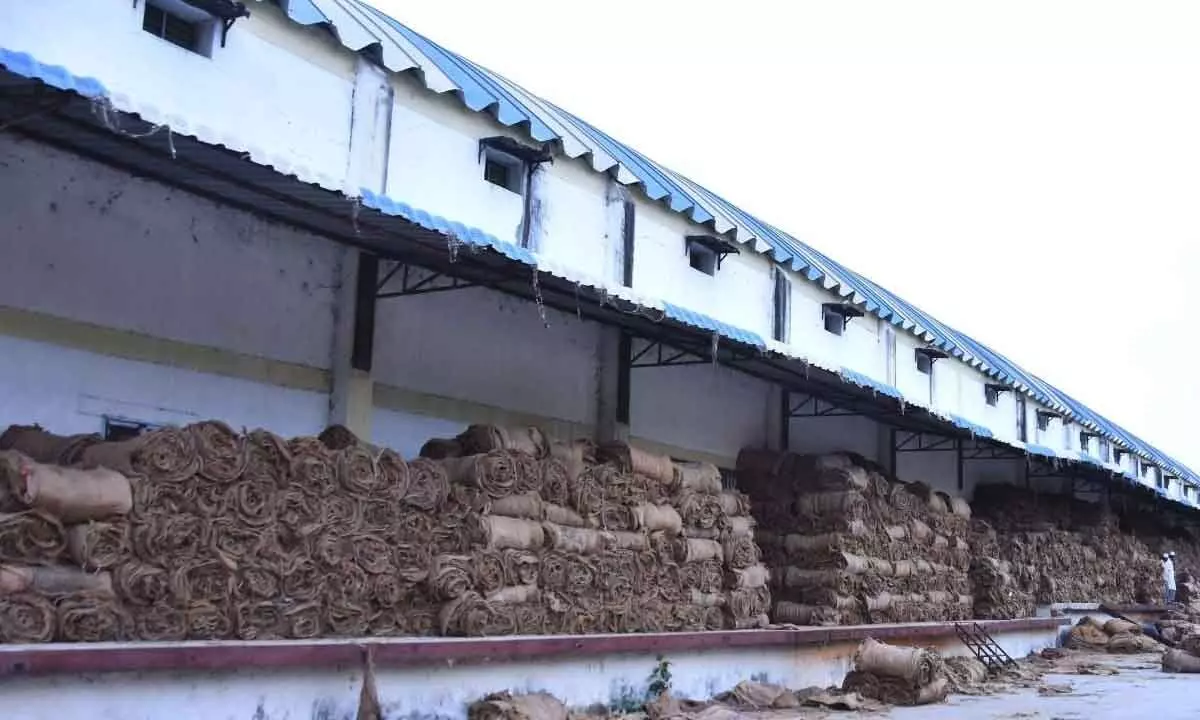Where to store fresh stock of paddy?

The godown to store fresh stock of paddy in Waragangal
Although the State government took a bold decision to procure paddy produced in the Rabi, it has to overcome a set of mind boggling problems once the arrivals begin.
Warangal: Although the State government took a bold decision to procure paddy produced in the Rabi, it has to overcome a set of mind boggling problems once the arrivals begin.
With the paddy ready for harvesting, the State has three major challenges apart from finances - storage, transportation and gunny bags.
According to officials, 90 per cent of the godown space in erstwhile Warangal district is already occupied with the old stocks. The Food Corporation of India (FCI) is yet to clear existing stocks from its warehouses in the State thus leading to an unprecedented shortage of godown space for paddy.
On the other hand, the rice millers also have no space to store new stocks as they already hold around 2 lakh MT of paddy of the earlier season. Even though the government permits storage in private godowns, it's difficult to find empty space in them as they were already occupied with the old stocks.
There are 93 raw rice mills and 21 parboiled rice mills, and 11 godowns in Warangal district. Hanumakonda district has 46 raw rice mills and 18 parboiled rice mills, and seven godowns.
Jangaon district has 29 raw rice mills and 18 parboiled rice mills. The godowns in Jangaon have a capacity to hold 83,000 MT; however, almost all the space in them was occupied. The situation in Mulugu, Mahabubabad and Jayashankar-Bhupalpally is no different. In the last couple of years the authorities stored paddy in the government schools that remained closed during the coronavirus pandemic.
As these problems were not enough, the authorities have problems in transporting paddy from procurement centres to designated rice mills. It has become a habit for the transport contractors to escape from their obligation. They cite non-availability of lorries to ferry the stocks. As a result, the onus was falling on farmers to shift their produce to rice mills. Although they were promised to pay the transportation charges, seldom the contractors kept their promise.









